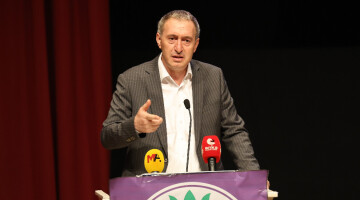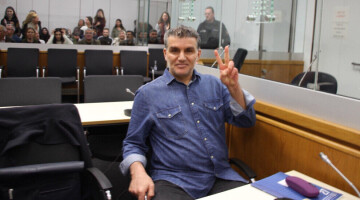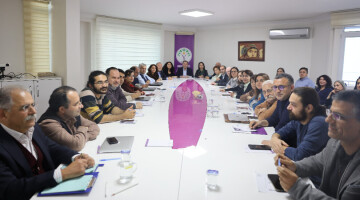Before Erdoğan’s visit to Berlin on September 28-29 as the President, the German state has increased cooperation with his government. The two states are exposed once again to be working in parallel in the “security” and “law” areas in particular.
As a result of the cooperation between Berlin and Ankara, the Kurdish refugee Ibrahim Ö. who has lived in the state of Mecklenburg-Vorpommern for years was forced to give a deposition on the demand of the Erdoğan regime’s prosecutors. The Kurdish refugee, accused of “insulting” Turkish President Recep Tayyip Erdoğan over Facebook has been under investigation by the Igdir prosecutor’s office for a while.
GERMAN POLICE INTERVENED WHEN HE DIDN’T SHOW UP FOR A DEPOSITION
Upon the discovery that Ibrahim Ö. lives in Germany, the investigation file in the Igdir prosecutor’s office was sent to the Turkish Embassy in Berlin and the Neubrandenburg prosecutor’s office got involved after some time. German police intervened when Ibrahim Ö, who is a resident of the city Neustrelitz, didn’t show up to give a deposition to the prosecutor’s office on allegations of “membership to a terrorist organization” and “insulting the President”.
The police called the Kurdish refugee in for a deposition, and Ibrahim Ö. was treated as a criminal and asked questions on the investigation. Ibrahim Ö. said the statements on Facebook were not made by him, and that he only shared the statements regarding Erdoğan. One of the posts included the word, “Kerdogan”.
The Kurdish refugee’s lawyer Lukas Theune criticized the Ministry of Justice of the Mecklenburg-Vorpommern State for the prosecutor’s office and police calling his client in for a deposition without approval from the ministry. Theune pointed out that posts that the individuals didn’t write themselves do not constitute a crime in German law, and spoke out harshly against German judicial offices cooperating with the Erdoğan regime.
THE PROSECUTOR DOESN’T RESPOND TO WHETHER THEY GAVE THE INFORMATION
Another scandalous aspect of the whole incident is that there is a possibility that German security forces shared the Kurdish refugee’s personal information with the Turkish state. Lawyer Theune said, “If the prosecutor’s office shared my client’s personal information with Turkish institutions, if this put him or his family in any danger, that would be a great scandal for the judiciary.”
Theune said he wrote to the Neubrandenburg prosecutor’s office to ask whether they shared the information with the Turkish state: “The prosecutor’s office hasn’t responded yet. But I believe they did share the information.” Theune said it is curious that the German security forces have taken action now, despite the investigation having been launched in 2016.
Ibrahim Ö. said his home and work address and phone numbers were included in the German prosecutor’s office’s files and added: “I have no fear, but you never know what Turkish intelligence will do.”
GERMANY, THE MIT’S BACK YARD
Germany is among the countries where the MİT roams most free and has the biggest intelligence networks. German state officials themselves have announced several times that there have been assassination plots against Kurdish politicians and opponents of the Erdoğan regime, and most recently in a report published in July the German intelligence services pointed out th the MIT uses official Turkish state representation offices like consulates and embassies in particular.
Germany’s domestic intelligence agency Federal Office for the Protection of the Constitution (BfV) stated in their 2017 report that MIT members carry out intelligence activities in Germany under the guise of embassy/consulate workers, and that mosques owned by the DITIB, under the Turkish Religious Affairs Directorate, were being used by the MIT.











